Talks with US 'meaningless' under maximum pressure policies, says Iran
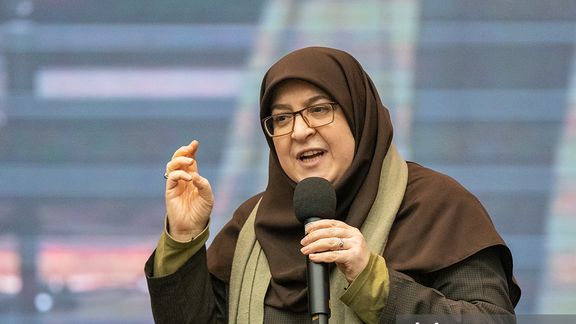
Iran sees no point in negotiations while the US enforces maximum pressure policies, the country's government spokeswoman said on Tuesday.

Iran sees no point in negotiations while the US enforces maximum pressure policies, the country's government spokeswoman said on Tuesday.
"Iran has always kept the door open for negotiations, but when maximum pressure [directive] is signed, talks become meaningless," Fatemeh Mohajerani told reporters.
"An interagency plan to counter maximum pressure will be announced soon, and all parties are prepared," she added.
Earlier this month, US President Donald Trump signed a directive restoring the so-called maximum pressure policy on Iran of his first term and warned of "catastrophic" consequences if Tehran does not make a deal on its nuclear program.
After signing the memorandum, he said he would prefer a deal with Tehran to an Israeli attack on their nuclear sites.
On Monday, Iranian Foreign Minister Abbas Araghchi said Washington's maximum pressure campaign of sanctions and mooting of military force will not force Iran to negotiate about its nuclear program.
"Iran’s position is clear and explicit: We will not negotiate under pressure and threats," Araghchi told reporters in Tehran after a meeting with his Sudanese counterpart.
"The presidential order for maximum pressure speaks for itself. Maximum pressure and resolutions have never been effective against Iran … We will not negotiate under threat," he added.
The remarks appear to represent a hardening line by Tehran to the suggestion by US President Donald Trump that Iran come to a deal with Washington about its disputed nuclear program or potentially face military strikes.
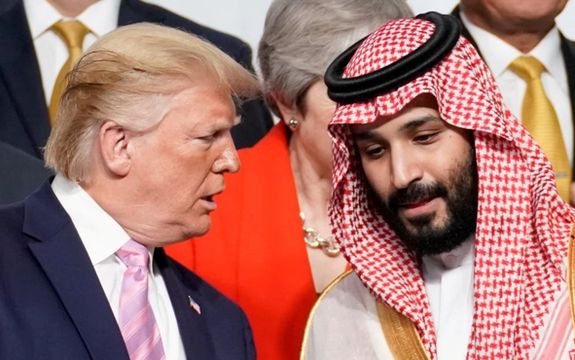
Tehran has reacted with suspicion to a report suggesting regional rival Saudi Arabia may mediate between Iran and US President Donald Trump, in the latest twist to a drama over whether Iran would accept Trump's overtures for a nuclear deal.
CNN reported on Sunday that Riyadh is open to brokering discussions between the US and Iran to curb Tehran’s nuclear program.
The kingdom is concerned, the US network reported, that Iran might pursue nuclear weapons more aggressively after Israel battered regional allies which had acted as Iran's deterrent to a direct Israeli attack for decades.
Asked about the CNN report at his weekly press briefing Monday, Iran's foreign ministry spokesman Esmaeil Baghaei denied any knowledge and said these were only “media speculations.”
An article titled "Will Saudi Arabia Mediate Iran-US Negotiations?" published by Nour News on Monday outlined key obstacles to Saudi mediation. It highlighted Iran's deep mistrust of the US, shaped by the policies of former President Donald Trump, who withdrew from the 2015 nuclear deal. The article also pointed to conflicting Iranian and Saudi interests in regional matters, including Lebanon, Iraq, and Syria, as additional challenges to mediation efforts.
Iranian authorities are “seeking strong guarantees of reduction of sanctions before entering new talks,” the media outlet close to former Iranian national security chief Ali Shamkhani, wrote.
Despite these challenges, Nour News acknowledged the potential for reduced tensions and even a new agreement if Saudi Arabia facilitates balanced, pressure-free negotiations.
Foreign affairs expert Ali Bigdeli, speaking to Nameh News on Sunday, noted that Saudi Arabia’s diplomatic influence had grown, citing an upcoming US-Russia meeting in Riyadh as evidence. He suggested Iran might view Saudi mediation positively. “Mr. Araghchi’s visit to Oman may not be unrelated to this matter,” he added.
Bigdeli also argued that Saudi mediation would differ significantly from that of Qatar, given Saudi Arabia’s dominant role in the Persian Gulf.
Iran's Supreme Leader Ali Khamenei repeatedly asserted in the past that the Islamic Republic would never engage in negotiations with the Trump administration. He also notably declined to respond to a message from Trump, delivered by former Japanese Prime Minister Shinzo Abe in June 2019.
In a speech on February 7, after Trump issued an executive order to reinstate his “maximum pressure” sanctions on Iran, Khamenei emphatically rejected talks with the United States.
Meanwhile, US Secretary of State Marco Rubio arrived in Riyadh on Monday ahead of planned talks between Trump and Russian President Vladimir Putin, to be hosted by Saudi Crown Prince Mohammed bin Salman. While Iran’s nuclear program may be discussed, no official announcements have been made.
On Sunday, US National Security Advisor Mike Waltz said President Donald Trump is willing to engage in talks with Iran only on condition that Tehran fully abandon its nuclear program.
"The President has also expressed a willingness to take whatever action is necessary. All options are on the table," Waltz told Fox News on Sunday, leaving the option of diplomatic channels open.
Oman acted as a mediator between Iran and the United States before the talks that led to the 2015 nuclear deal, and Qatar has recently offered to mediate new talks.
Speculation has risen that this topic may feature in the upcoming visit of Qatari Emir Tamim bin Hamad Al Thani to Tehran. However, Iranian Foreign Ministry spokesman Esmaeil Baghaei denied these claims during his weekly briefing on Monday.
Iran and Saudi Arabia restored diplomatic ties in 2023, facilitated by Iraq and China. The Saudi Embassy in Tehran reopened in August of that year, seven years after vigilantes attacked and torched the building in protest to the execution of dissident Shia cleric Nimr Baqir al-Nimr in Saudi Arabia.
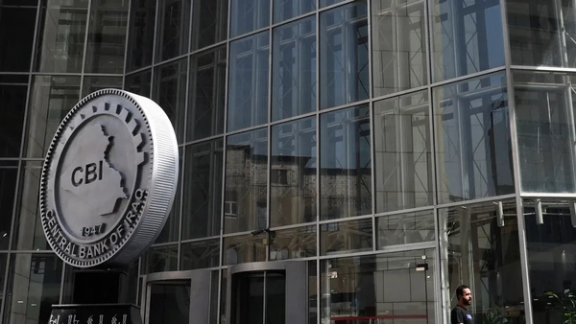
Senior Iranian and Iraqi officials held consultations in Baghdad as Iraq’s central bank banned five more banks from US dollar transactions following discussions with US Treasury officials.
The move is intended to combat money laundering and dollar smuggling alongside other unilateral financial restrictions that were imposed on eight banks in Iraq last year alongside Baghdad’s attempts to increase pressure on Tehran in regards to access to hard currency.
Iran’s Deputy Foreign Minister for Politics Majid Takht-Ravanchi met with Iraqi Deputy Foreign Minister Mohammad Bahr al-Uloom, along with National Security Advisor Qassim al-Araji and Deputy Speaker of the Iraqi Parliament Mohsen al-Mandalawi.
“Exchange of views on vital and important issues between the two close neighboring countries, who share many commonalities, is a must in this challenging time for the West Asia,” Ravanchi wrote on X.
The ban on Iraqi banks follows meetings in Dubai between officials from Iraq’s central bank, the US Treasury, and the Federal Reserve.
Iraq, which holds more than $100 billion in reserves in the US, is reliant on the approval of Washington in order to keep access to its oil revenue.
The recent restrictions are in line with US President Donald Trump’s reinstatement of his "maximum pressure" strategy on Iran, raising fears that Baghdad may experience increased financial difficulties putting it in between Washington and Tehran.
Iran views Iraq as an economic ally for hard currency, while it leverages strong ties with Shi’ite militants and political factions in the Arab country.
The US has long been seeking to restrict Tehran’s ability to bypass sanctions through its Arab neighbor’s financial system.
While the West has lauded Iraqi Prime Minister Mohammed Shia al-Sudani’s economic initiatives, the escalating financial strain could challenge Baghdad’s ability to balance Washington’s expectations with its economic connections to Tehran.
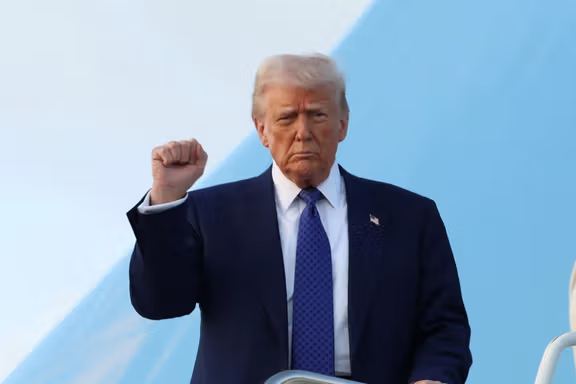
US National Security Advisor Mike Waltz on Sunday said President Donald Trump is willing to engage in talks with Iran only on condition that Tehran fully abandon its nuclear program.
"The President has also expressed a willingness to take whatever action is necessary. All options are on the table," Waltz told Fox News on Sunday, leaving the option of diplomatic channels open.
"They [Iran] are an irrational actor that we cannot allow to have their finger on the button," he added.
He explained that Trump is willing "to talk to Iran" only on condition of giving up the "entire [nuclear] program and not play games as we've seen Iran do in the past".
Waltz said that Iran's nuclear program - which the head of the UN's nuclear watchdog last year said is "weeks not months" from a weapon - could not only pose a threat to the region, but globally.
"President Trump is absolutely serious, deadly serious, when he says Iran can never have a nuke, and certainly not on his watch," Waltz said.
"That not only would be existential for Israel, I think it would be existential for the entire world, because it could kick off a nuclear arms race in the Middle East," he added.
'No outreach from Iran'
Trump's state secretary, Marco Rubio, told CBS later on Sunday that the US administration does not "have any outreach from Iran."
"Ideally, yeah, I would love to wake up one day and hear the news that Iran has decided not to pursue a nuclear weapon, not to sponsor terrorism, and re-engage in the world as a normal government. We've had no indication of any of that, not just now, but for 30 years," he said.
Rubio also hinted at a more stringent deal with Iran compared with the 2015 agreement. "Past that efforts that Iran has undertaken diplomatically have been only about how to extend the time frame that- but continue to enrich and rep- and- and in addition to sponsored terrorism, in addition to build these long-range weapons, in addition to sow instability throughout the region."
Rubio had earlier, during a press conference in Jerusalem, said that Iran is the single greatest threat to the Middle East.
Speaking alongside Israeli Prime Minister Benjamin Netanyahu on Sunday, he said: "Behind every terrorist group, behind every act of violence, behind every destabilizing activity, behind everything that threatens peace and stability for the millions of people that call this region home is Iran."
"There can never be a nuclear Iran. A nuclear Iran, that could then hold itself immune from pressure and from action. That can never happen. The President's been clear about that as well."
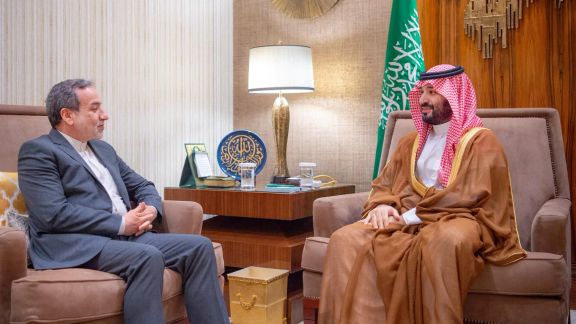
Saudi Arabia is open to mediating between the Trump administration and Iran in pursuit of a new agreement to limit Tehran’s nuclear program, CNN reported on Sunday.
The report said that Riyadh is concerned that Iran may be more inclined to pursue nuclear weapons after the weakening of its allied forces in the Middle East, which had long been seen as a deterrent against Israeli attacks.
Saudi Arabia hopes to leverage its ties with US President Donald Trump to provide Iran with a diplomatic channel to the White House, according to the report.
CNN added that it remains unclear whether Saudi Arabia has made a formal offer, but said the move highlights Riyadh’s efforts to build on its improving relations with Iran and secure a role in any future negotiations.
On Saturday Al-Hadath cited a senior European diplomat saying that if Tehran fails to reach an agreement with the Trump administration before October, Israel will launch a military attack on Iran.
The director general of the UN's nuclear watchdog on Friday said the international community should not waste any more time and should finalize a deal on Iran's nuclear program before it is too late.
Speaking to reporters on the sidelines of the Munich Security Conference, Rafael Grossi said Iran would likely have about 250 kg of uranium enriched to up to 60% by the time of the agency's next report in the coming weeks.
On February 4, Trump signed a directive reviving his so-called maximum pressure policy on Iran from his first term aimed at driving the Islamic Republic's oil exports to zero. After signing the memorandum, he said he would prefer a deal with Tehran to an Israeli attack on their nuclear sites.
"I would love to make a deal with them without bombing them," he said on Fox News.
Following weeks of ambivalent signals regarding negotiations and a struggle in Tehran's political scene, Khamenei finally voiced his opposition to negotiations on February 7, saying talks with the US are "not smart, wise, or honorable."
Iran's President Masoud Pezeshkian also said the country would not yield to external threats.
During last week's state rally marking the anniversary of the 1979 Islamic Revolution, Pezeshkian accused the US of duplicity, saying that Trump called for negotiations while continuing sanctions.
Iran’s Supreme Leader praised the president for rejecting talks with the United States and said Tehran must continue its military progress after Trump’s threat to stop Iran's nuclear program by force.
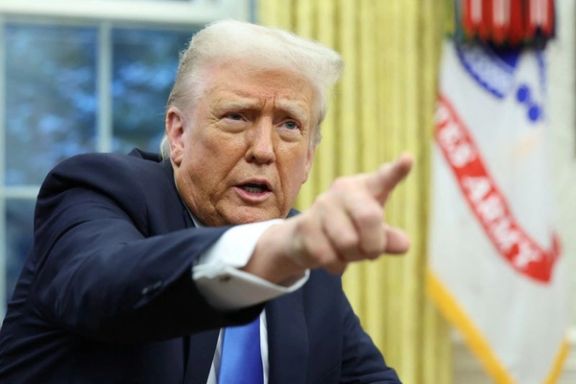
Some Iranian politicians and media are attempting to soften Iran’s stance on negotiations with the United States after Supreme Leader Ali Khamenei’s rejection of talks, framing it as a call for President Donald Trump to change his public tone.
Meanwhile, several politicians and commentators have maintained a defiant stance, while others, including President Pezeshkian, have remained in denial about the talks, insisting they can address Iran's problems without the need to lift sanctions.
For the second time in less than a week, Jomhouri Eslami—a daily linked to Khamenei's office but often critical of hardline policies—argued in a February 15 article that negotiations between Tehran and Washington remain possible if Trump moderates his tone toward the Islamic Republic.
The daily accused Trump of "naivety," stating, "The responses he received from Iranian officials should have shown him that arrogant rhetoric does not work with Iran." It also addressed Trump directly, asserting, "Iran is not opposed to negotiations—it is opposed to blackmail."
Meanwhile, former Justice Minister and security official Mostafa Pourmohammadi told Entekhab news website on February 15 that "Khamenei has never forbade negotiations with the United States." However, this statement was in a clear and sharp contrast with Khamenei's latest remarks.
Pourmohammadi commented, "Khamenei has never closed the door to negotiations. On the contrary, it is US officials who want to portray Iran as unwilling to negotiate. In reality, we are a rational state with a strong foundation and an educated nation always ready for dialogue with the world."
Elsewhere in the interview, he contradicted himself, saying, "We would never negotiate with arrogant individuals who first slap us in the face and then say, 'Let's kiss and talk.'" His remarks closely echoed Pezeshkian’s February 10 speech on the anniversary of the 1979 revolution, where he dismissed negotiations with Trump and called his behavior "unmanly."
The conservative Nameh News website quoted ultraconservative commentator Foad Izadi, frequently presented by Iranian state TV as a US politics expert, as saying, "Trump will attack Iran if he believes the cost will be low or manageable. However, if he sees that such an attack would come at a high price, he will never go through with it."
Nameh News described Tehran and Washington as being at a historic turning point in their relations. The outlet noted that Pezeshkian had hoped to engage in talks with Trump under the conditions set by his administration in 2018. However, Trump’s latest stance—implying that Iran could avoid Israeli airstrikes if it agreed to negotiate—has left Tehran in a state of uncertainty.
The Iranian Labor News Agency (ILNA) quoted Iran's security chief, Ali Ahmadian, as saying that Iran has no ideological opposition to negotiating with the United States. However, he asserted that Tehran refuses to engage with Washington due to its "arrogant behavior" before and during the 2015 nuclear negotiations, as well as its failure to uphold commitments after the deal was reached.
Meanwhile, some Iranian politicians and commentators, including conservative figure Nasser Imani, have advocated strengthening ties with China and Russia instead of engaging with the United States. The Rouydad24 website quoted Imani as saying, "There is no point in making a deal with America. We have to pivot toward China and Russia."
At the same time, Ahmad Bakhshayesh Ardestani, a member of the parliament's national security committee, addressed US concerns over Iran’s potential nuclear weaponization. In what appeared to be support for developing nuclear weapons, he stated, "Whether we have a bomb or not, US sanctions will continue." However, echoing moderate politicians and media, Ardestani added, "We will negotiate with America if Trump adopts a softer tone and rhetoric."